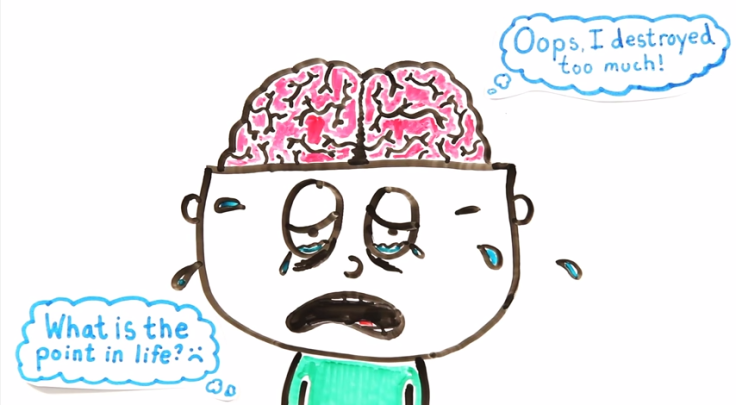Molly Will Lift You Up And Let You Down; What MDMA Does To Your Brain

MDMA (3,4-methylenedioxy-N-methylamphetamine, or commonly known as Molly) isn't as harmless as its prevalence makes it seem. By their senior year of high school, more than seven percent of teenagers will have tried it, according to the National Institute on Drug Abuse (NIDA).
MDMA is ecstasy in its pure form, without any additives. It works by sending a rush of serotonin and dopamine to the brain, causing extreme happiness. But other than unbridled joy, what does MDMA, or molly, actually do to people's brains?
As with any drug, there are potentially disastrous side effects. The next-day hangover is a bummer, to say the least. And NIDA experts say heavy users can experience those effects — "confusion, depression, sleep abnormalities, and problems with attention and memory" — in the long term. So far, studies are inconclusive about whether molly is addictive, but some users do report feeling dependence to the drug, probably because it stunts their ability to feel happy normally.



























